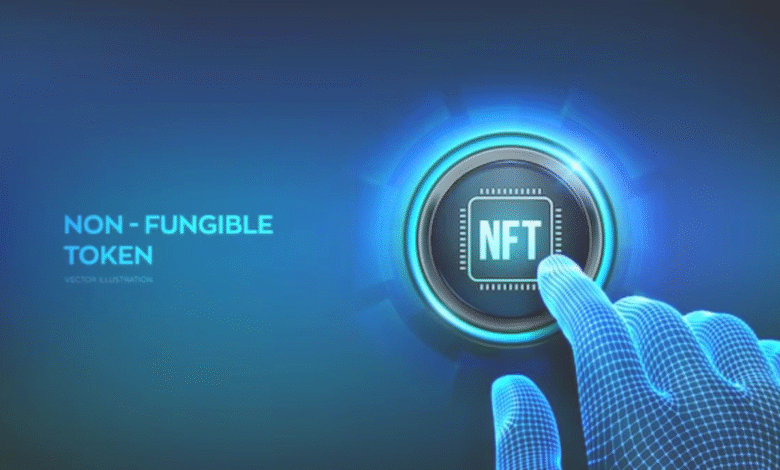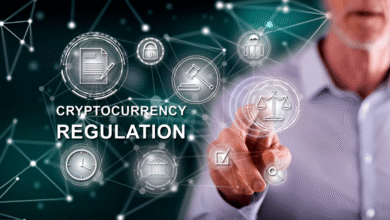
NFTs (Non-Fungible Tokens) are reshaping the global digital economy, and Pakistan stands at the cusp of this transformative wave. As blockchain technology gains momentum worldwide, NFTs offer Pakistani artists, entrepreneurs, and investors a unique opportunity to participate in a decentralized, borderless marketplace. From digital art and music to virtual real estate and collectibles, NFTs are unlocking new avenues for creativity and financial growth. However, while the potential is immense, Pakistan’s NFT ecosystem faces challenges such as regulatory uncertainty, limited public awareness, and cybersecurity risks. Understanding these opportunities and risks is crucial for stakeholders looking to navigate this emerging space effectively.
The rise of NFTs in Pakistan coincides with the country’s growing tech-savvy youth population and increasing internet penetration. Local artists and creators are already experimenting with NFTs to bypass traditional gatekeepers and monetize their work directly on global platforms. Meanwhile, startups and investors are exploring NFT-based ventures in gaming, metaverse projects, and digital identity solutions. Yet, without proper regulations, infrastructure, and education, the risks of fraud, market volatility, and environmental concerns related to blockchain energy consumption remain significant. This is explores how Pakistan can harness the potential of NFTs while addressing the barriers that could hinder their sustainable adoption.
The Future of NFTs in Pakistan
Their Global Impact
In Pakistan, the NFT space is still in its early stages but shows significant potential. With a young, tech-savvy population and a growing interest in blockchain, the country could become a hub for NFT innovation. However, challenges such as regulatory ambiguity, limited infrastructure, and cybersecurity risks must be addressed to ensure sustainable growth. This article delves into the opportunities NFTs present for Pakistan while examining the risks that could impede progress.
Opportunities for Artists and Creators
One of the most promising aspects of NFTs is their ability to empower artists and content creators. In Pakistan, where traditional art markets are often limited by geographic and financial barriers, NFTs provide a decentralized platform for creators to monetize their work globally. Digital artists, musicians, and even writers can tokenize their creations, ensuring authenticity and earning royalties on secondary sales. Platforms like OpenSea, Rarible, and local NFT marketplaces enable Pakistani artists to reach international audiences without intermediaries.
Entrepreneurial and Investment Potential
Beyond art, NFTs offer vast entrepreneurial opportunities in Pakistan. Startups can leverage blockchain technology to create NFT-based solutions in gaming, virtual real estate, and digital collectibles. The gaming industry, in particular, stands to benefit, as NFTs allow players to own in-game assets that can be traded or sold. Investors are also eyeing NFTs as an alternative asset class. While the market is volatile, early adopters in Pakistan could capitalize on emerging trends.
Risks and Challenges
Despite the opportunities, NFTs come with considerable risks. The lack of clear regulations in Pakistan creates uncertainty for investors and creators. Without legal frameworks, disputes over ownership and fraud could become prevalent. Additionally, the environmental impact of blockchain transactions raises concerns, as energy-intensity mining processes contribute to carbon emissions. Cybersecurity is another major issue, with hackers targeting NFT marketplaces and digital wallets. Many Pakistanis are still unfamiliar with blockchain technology, making them vulnerable to scams.
The Road Ahead for NFTs in Pakistan
Regulatory Framework and Government Support
The future growth of NFTs in Pakistan heavily depends on the establishment of clear regulatory guidelines. Currently, the country lacks specific policies governing blockchain-based assets, creating uncertainty for creators, investors, and platforms. The government must collaborate with fintech experts and legal authorities to develop a balanced regulatory framework that encourages innovation while protecting users from fraud and market manipulation. Initiatives such as sandbox environments for blockchain startups and taxation policies for NFT transactions could provide much-needed structure.
Infrastructure and Technological Advancements
For NFTs in Pakistan to thrive, Pakistan needs significant improvements in digital infrastructure, including high-speed internet accessibility and blockchain-friendly banking solutions. The current limitations in payment gateways and digital wallet adoption hinder seamless NFT trading. Additionally, the development of local NFT marketplaces tailored to Pakistani creators and buyers could reduce dependency on international platforms.
Financial Inclusion and Economic Opportunities
NFTs present a unique opportunity to enhance financial inclusion by enabling artists, musicians, and small businesses to monetize their work globally. In a country where traditional art markets are often restricted by geographic and economic barriers, NFTs can democratize access to buyers worldwide. Furthermore, the rise of play-to-earn NFT games and virtual real estate could create new income streams for Pakistan’s youth.
Cultural Preservation and Digital Identity
NFTs in Pakistan offer an innovative way to preserve Pakistan’s rich cultural heritage by digitizing traditional art, music, and historical artifacts. By tokenizing these assets, the country can safeguard its legacy while making it accessible to a global audience. Collaborations between cultural institutions and blockchain developers could lead to the creation of NFT-based museums or digital galleries. Additionally, NFTs could play a role in establishing verifiable digital identities for artists, ensuring authenticity and protecting intellectual property rights in the digital space.
Environmental and Ethical Considerations
The environmental impact of blockchain technology remains a significant concern, as many NFT transactions rely on energy-intensive proof-of-work systems. Pakistan must explore sustainable alternatives, such as proof-of-stake blockchains or carbon-neutral NFT platforms, to mitigate ecological risks. Ethical considerations, including fair compensation for creators and preventing exploitation in the NFT marketplace, should also be addressed through industry standards and community-driven initiatives.
Global Collaboration and Market Positioning
For Pakistan to succeed in the NFT space, it must actively engage with international blockchain communities and investors. Participation in global NFT conferences, partnerships with established platforms, and cross-border collaborations can help Pakistani creators gain visibility. By fostering a reputation for high-quality digital art and innovative blockchain applications, Pakistan can attract foreign investment and establish itself as a hub for NFT development in the region.
Challenges and Risk Mitigation
Despite the opportunities, Pakistan’s NFT market faces challenges such as low digital literacy, cybersecurity threats, and market speculation. Educational campaigns targeting both creators and consumers can help build a more informed community. Strengthening cybersecurity measures, including secure wallet solutions and fraud detection systems, will be critical in building trust. Additionally, financial regulators should monitor market trends to prevent bubble scenarios and protect investors from unsustainable hype.
The Role of Community and Grassroots Movements
The growth of NFTs in Pakistan will largely depend on grassroots adoption and community-driven initiatives. Local NFT collectives, artist guilds, and blockchain advocacy groups can play a pivotal role in educating the public and fostering collaboration. Decentralized autonomous organizations (DAOs) could also emerge as a powerful tool for community-led decision-making in the NFTs in Pakistan space, ensuring that the ecosystem develops in a way that benefits all stakeholders.
Read More: Smart Cities in Pakistan: A Dream or the Next Reality?
Conclusion
NFTs in Pakistan present a fascinating dichotomy of immense potential and notable challenges. On one hand, they offer artists unprecedented global exposure, entrepreneurs innovative business models, and investors new digital asset opportunities. The technology’s ability to authenticate ownership and enable direct creator-to-consumer transactions could revolutionize Pakistan’s creative economy. As blockchain adoption grows, NFTs in Pakistan may become instrumental in sectors beyond art, including education, real estate, and intellectual property management.
However, the future of NFTs in Pakistan hinges on addressing critical barriers. Regulatory clarity, technological infrastructure, and digital literacy must improve to create a sustainable ecosystem. Without proper safeguards against fraud and market volatility, the risks could outweigh the rewards. If stakeholders including policymakers, businesses, and creators collaborate to build a secure and inclusive framework, Pakistan could position itself as an emerging player in the global NFTs in Pakistan while protecting participants from its inherent uncertainties.
FAQs
What are NFTs, and how do they work?
NFTs (Non-Fungible Tokens) are unique digital assets stored on a blockchain, representing ownership of art, music, or other digital items. Unlike cryptocurrencies, each NFT is one-of-a-kind.
Can Pakistani artists sell NFTs internationally?
Yes, Pakistani artists can list their NFTs on global platforms like OpenSea and Rarible, reaching buyers worldwide without intermediaries.
Are legal in NFTs in Pakistan?
Currently, Pakistan lacks specific NFT regulations, but blockchain technology is not banned. Investors and creators should stay updated on future policies.
What are the risks of investing in NFTs?
NFTs are highly volatile, and scams are common. Investors should research thoroughly and use secure wallets to protect their assets.
How can benefit from NFTs in Pakistan?
NFTs in Pakistan can boost creative economy, provide new income streams for artists, and attract blockchain-based startups and investments.












One Comment